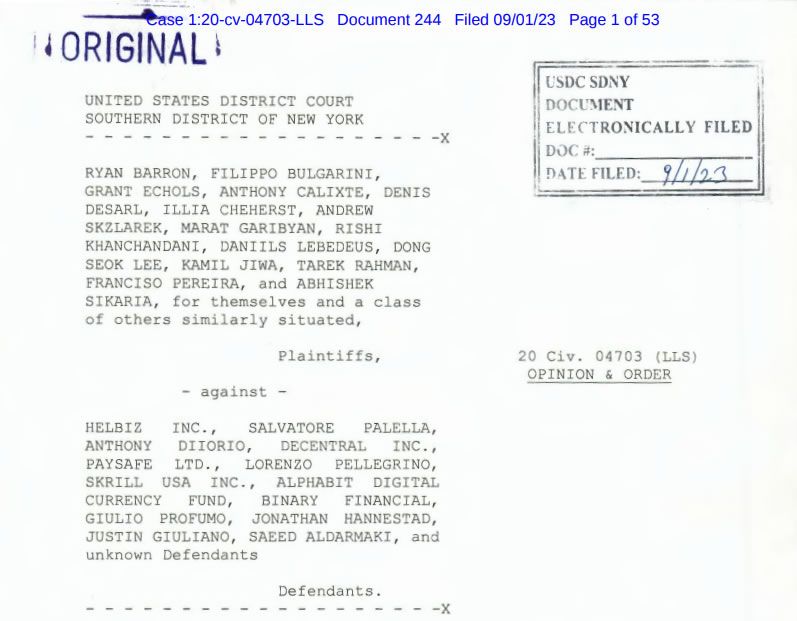A US federal court has ruled in favor of investors in the HelbizCoin class-action lawsuit, allowing the case to proceed after nearly three years. The lawsuit alleges fraudulent behavior by Helbiz, its CEO Salvatore Palella, and partners, claiming that HelbizCoin was a rug pull and fraudulent pump-and-dump scheme.
Lawsuit Overview
Investors filed a class-action lawsuit against Helbiz, its CEO, and partners in 2020, with an amended complaint in March 2022. The case centers around Helbiz, an Italian electric scooter-sharing company that conducted an ICO raising $38.6 million and issued an ERC-20 token in partnership with Ethereum co-founder Anthony Di Iorio in 2018.
Allegations and Rulings
The investors, numbering up to 20,000, alleged that HelbizCoin was a fraudulent scheme, with the company making false statements to induce coin purchases. They claimed that Helbiz retained most of the ICO funds for itself. On September 1, the US District Court for the Southern District of New York partially ruled in favor of the investors.

Court Decisions: Mixed Court Rulings
The court dismissed some claims against certain defendants due to a lack of personal jurisdiction or failure to state a claim. However, Judge Louis Stanton ruled that plaintiffs adequately stated claims for fraud, price manipulation, securities law violations, and unjust enrichment against certain defendants. The court also determined that the ERC-20 token is a security under federal law.
Legal History
The investors' lawsuit was initially dismissed (1) in January 2021 by a lower court judge based on a Supreme Court precedent limiting the reach of federal securities laws. The case was revived in October 2021 by a 2nd US Circuit Court of Appeals, which found the lower court judge's decision to be erroneous. An amended complaint was filed in March 2022.










